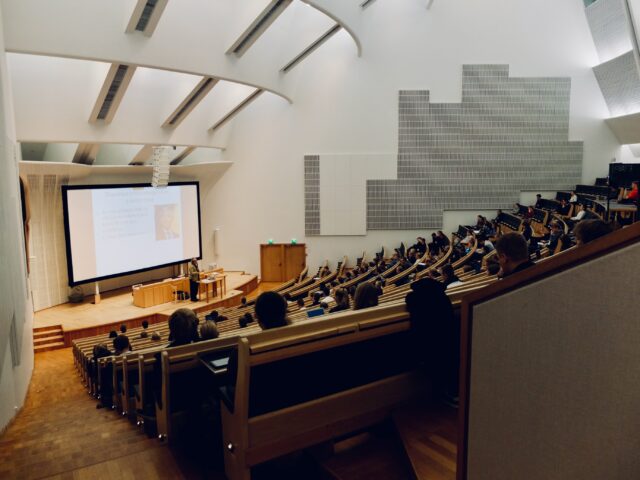Two Quebec communities have received federal funding through the Government of Canada’s Green and Inclusive Building program to support the construction and renovation of dedicated cultural centres. Canada has announced $8.9M in funding to support the construction of the Kebaowek First Nation Cultural Centre. The centre will provide the community with a place to teach history; develop language skills; and offer the community’s youth recreational, extra-curricular, and employment-related activities. “The Green and Inclusive Building program will help to give the citizens and community an opportunity to build a solid base from which to continue the vital work needed to reinvigorate and revitalize our language, cultural practices, teachings and ceremonies, said Chief Lance Haymond. The federal government has also announced $25M to support infrastructure improvements to the Val-d’Or Native Friendship Centre. The funding will support the expansion of the building and a retrofit of the Indigenous daycare centre. All of the renovated and expanded spaces will be carbon neutral.

Indigenous Top Ten News
August 24, 2022
University nuxełhot’įne thaaɁehots’į nistameyimâkanak Blue Quills has completed a two-year project translating five well-known Robert Munsch children’s books into nêhiyawêwin (Cree) and denesųłıné (Dene). The books include Love You Forever, and Ready, Set, Go! and each includes an audio version. The university collaborated with publishing company Scholastic Canada on the project. “These are books that the children and parents have grown up with, and now to have it in our Indigenous languages is such a buzz of excitement,” said Blue Quills language resource developer Tina Wellman.
As the new First Nations School Board in the Yukon prepares to start its inaugural year, teachers took part in a training session led by First Nations knowledge keepers and educators. Teachers participated in a variety of workshops including traditional beading, hand games, foraging, and salmon fileting, and education advocate with the Yukon First Nation Education Directorate Blake Lepine said that he hoped that teachers would be able to use the training to incorporate First Nations knowledge and values into their teaching. First Nations School Board Interim Executive Director and member of the Trʼondëk Hwëchʼin First Nation Melissa Flynn expressed hope about the new school board and how it will contribute to real reconciliation. “It really is a monumental moment to recognize the leaders and the aspirations from elders that have come before us to get us to this point,” said Flynn. “We’re now in a position where we can work together with the team of educators and really embrace what truth and reconciliation looks like on our traditional territories.”
The Gabriel Dumont Institute and Morris Interactive will be co-offering a Digital Transformation in Potash Mining course, thanks to a $1M investment from the Mosaic Company. With the five-year funding offer, Mosaic supports economic reconciliation and has a goal of increasing the number of digital experts in the mining industry while building relationships with Indigenous and industry clients. The course is community-specific and focuses on student success, supporting long-term and fulfilling careers, mutual respect, and shared economic benefit. The funding will enable the program to expand to train more Indigenous students and provide them mentorship, elder support, and post-career support after they complete the course. Students will complete their training in Saskatoon and complete their practicums at Mosaic’s Colonsay facility.
OSSTC, GREAT launch fundraising campaign to rebuild replica 17th-century longhouse destroyed by fire
Ogwehoweh Skill and Trades Training Centre and Grand River Employment and Training (GREAT) have begun a fundraising campaign to raise $1M to replace a Longhouse Ganǫsa’ǫ:weh that was badly damaged in a fire in July. The structure was a replica 17th-century longhouse that was used as a cultural cornerstone, a place for community members to learn about and engage with their own culture, and a tourist attraction. The fundraiser is called Ęjidwahsrö:ni, which means “we will build again” in Cayuga. Funds raised will go towards the purchase of building materials that need to be imported. Before the longhouse is rebuilt, OSSTC will complete an archeological assessment and assess if the fire has damaged the grounds. “It is an important part of our culture and has a very positive impact in our community,” said GREAT Executive Director Erin Monture.
Earlier this summer, Centre de services scolaire De La Jonquière and Cégep de Saint-Félicien partnered to support Indigenous students interested in social work and building maintenance. Students were able to pursue a diploma in business maintenance or an AEC in social work from the Cégep. The courses were offered at Center Mamik Lac-Saint-Jean, which supports Indigenous people living in urban areas. Courses were adapted to the needs of the students, and two cohorts of students graduated from the programs this summer. Mamik general manager Mélanie Boivin stated that the center hopes to hire some program graduates.
York University’s Academic Innovation Fund has invested in and is actively supporting the development of Biskaabiiyaang, a virtual Indigenous-led metaverse designed to deliver Anishinaabe language and First Nation cultural competency programs. Biskaabiiyaang uses quests, activities, and learning games to increase the number of Anishinaabemowin second-language speakers and safeguard the heritage of Indigenous peoples. YorkU’s support will help design the world and develop its Indigenous curriculum. “Biskaabiiyaang is an exceptional example of the innovative work our faculty are undertaking to provide students with a high-quality learning experience,” said YorkU AVP of teaching and learning Will Gage. “This project particularly enriches pedagogy by exploring Indigenous stories through immersive, gamified learning that both preserves and sparks interest in Anishinaabemowin.”
The Biinojiinh Kinomaage-gamik Early Years Centre on the Sheguiandah First Nation has celebrated its official opening. The centre was completed in August 2020 and celebrated a soft opening in May 2022 when pandemic restrictions were lifted. The building has been prepared to welcome the children with toys, books, and learning materials, and features a washer and dryer and a storage unit to store equipment. “This early years centre is here for the many kids we have … in the community,” said Sheguiandah Chief Elvis Mishibinijima. “Kids are like a sponge and they will soak up all the knowledge, education and fun that they will experience at this early years centre.”
Kenjgewin Teg and Queen’s University have partnered to provide support to Master of Education in World Indigenous Studies in Education (WISE) students. Through the partnership, Kenjgewin Teg and Queen’s staff will collaborate in areas such as program and curricula development, student support, and recruitment. Students in WISE will be offered Elder support to meet their personal, spiritual, and emotional wellness needs and will receive wrap-around supports even before they apply to the program. “This is an exciting time for Indigenous education and innovation,” said Kenjgewin Teg Acting President Beverley Roy. “As an accredited Indigenous Institute in Ontario, Kenjgewin Teg looks forward to enhancing our long-standing partnership with Queen’s University and now contributing to graduate level studies from our Anishinabek lens.”
The University of Prince Edward Island has implemented a mandatory Indigenous Studies course. The course will be launching in the Fall through the university’s new Faculty of Indigenous Knowledge, Education, Research, and Applied Studies (IKERAS). It will cover topics such as Indigenous history, cultures, practices, trauma, and healing. The course has been implemented to ensure that all graduates have been educated about Indigenous issues. “By just having a mandated course around Indigenous knowledge of peoples and their cultures, I believe that we are teaching responsible citizenship,” said UPEI Assistant professor David Varis, who is Cree.
